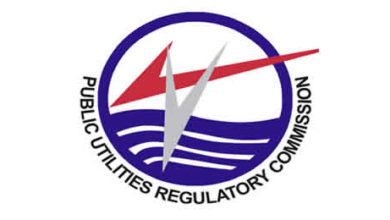IES MarketScan: A year on, why hasn’t ENI and Springfield unitized as directed

In April 2020, the then Energy Minister John Peter Amewu wrote to the subsidiary of the Italian oil major Eni Ghana Exploration and Production Limited (ENI), and Springfield Exploration and Production Limited (Springfield) a subsidiary of Springfield Group, directing them to execute a Unitization and Unit Operating Agreement (UUOA).
The purpose of executing the UUOA is to give full effect to the Government’s directive to unitize the Afina and Sankofa fields, and the subsequent imposition of terms and conditions for the unitization of the Afina discovery in the West Cape Three Points (WCTP2) and the Sankofa field in the offshore Cape Three Points (OCTP) contract areas.
The Institute for Energy Security (IES) MarketScan finds that the journey to the imposition of the terms and conditions for the unitization of the Afina and Sankofa fields begun in 2018 when Springfield wrote to the Minster for Energy indicating that, per their analysis of the data available to them, the Sankofa Cenomanian Reservoir extended into the WCTP2 contract area. Consequently, they requested the Minister to, in accordance with the law, direct the WCTP-2 contractor parties and OCTP contractor parties to commence unitization discussions.
After a series of engagements, Springfield was advised by the Hon. Minister to drill their prospect to further prove their claim, even though the seismic data showed that the Sankofa Cenomanian Reservoir extended into the WCTP2 contract area. Springfield based on the Minister’s advice, proceeded to drill the Afina-1x well which encountered hydrocarbons and thus corroborating their claim that the Sankofa Cenomanian extended into their contract area.
It was on the back of these engagements and analysis of the post-drill data by the Petroleum Commission (PC) and the Ghana National Petroleum Corporation (GNPC), that the Minister wrote to Eni and Springfield, stating that the Afina discovery in the WCTP-2 and the Sankofa field in the OCTP contract areas were one and the same.
Consequently, and in accordance with the law, the Hon. Minister directed Springfield and Eni to begin the process leading to unitization and to furnish him with a draft Unitization and Unit Operating Agreement (UUOA) within 120 days of his letter.
A year after the issuance of the first unitization directive, information available to the Institute indicates that Eni and Springfield are yet to sign the UUOA to give full effect to the Government’s directive. This, the Institute finds this as shocking and disappointing, given that the directive was issued in accordance with law and in the best interest of all the parties, including the State.
Section 34 (1) of the Petroleum (Exploration and Production) Act, 2016 (Act 919) specifically provides that “where an accumulation of petroleum extends beyond the boundaries of one contract area into one or more contract areas, the Minister in consultation with the Commission may, for the purpose of ensuring optimum recovery from the accumulation, direct the relevant contractors to enter into an agreement to develop and produce the accumulation of petroleum as a single unit”.
Similar principles apply in international practice. The Institute’s review of unitization laws in other countries show that majority of countries including Azerbaijan, United Kingdom, Egypt, Brazil, Nigeria, and Ecuador have enacted laws and regulations governing unitization processes which are very similar to the law in Ghana. The practice is usually for voluntary unitization, with the government having the power to enforce processes for unitization if voluntary unitization fails.
In international practice, the universal trigger for requiring unitization is geological, where a petroleum reservoir is found to extend underneath contiguous contract areas, given the different parties rights over the common reservoir.
Ghana’s laws makes provision for unitization because it prevents physical waste, prevents economic waste, and protects correlative rights (fair shares) of the parties to the contract areas. Unquestionably, unitization is a proper and generally accepted measure in the oil and gas industry to prevent waste. It is acknowledged as the best method of producing oil and gas efficiently and fairly.
It is an established fact that unitization leads to maximum economic benefits for all the parties involved including the State. These benefits are derived from, amongst others, sharing of development facilities, which naturally drives down costs and ultimately improve economic returns. The benefits to the State are in the form of significant reduction in operational and capital costs as well increases in royalties, taxes, Additional Oil Entitlement (AOE), fees and levies.
Having established that the Minister’s directive was in accordance with the laws of Ghana and international best practices, it is puzzling why the Eni and Springfield are yet to sign the UUOA to fully complete the unitization of the fields so as enable the State derive the much needed revenues for the benefit of the entire citizenry.
The IES counts the delay in unitizing the OCTP and WCTP-2 as loss of opportunity for the country to reap maximum benefits from its petroleum resources due to the economic incentives associated with unitization of oil and gas fields. The institute therefore calls on government to update the country on the progress so far made on its unitization directive to Springfield and Eni, as part of its accountability on the country’s petroleum resource management to the citizens of the country.





